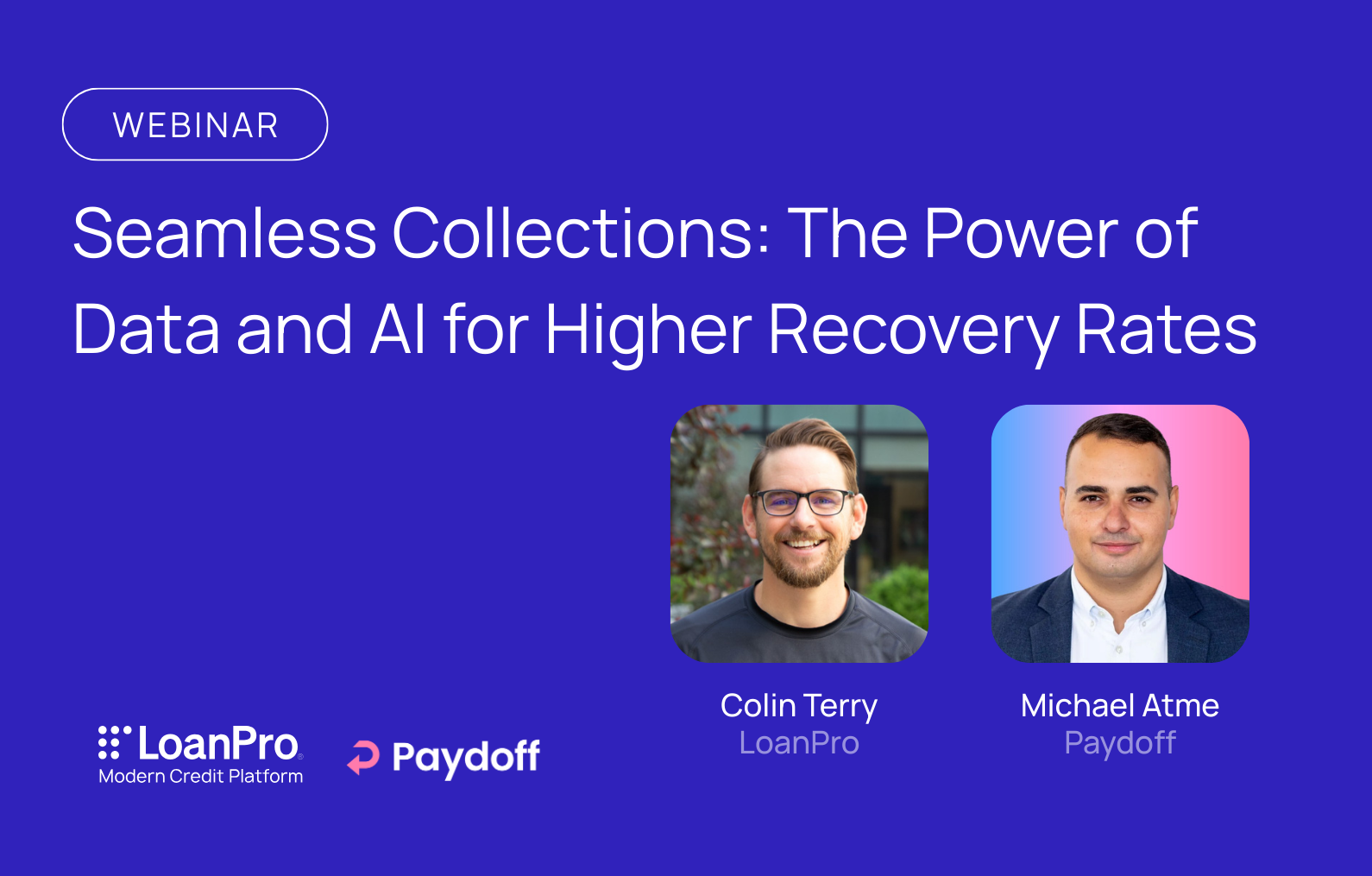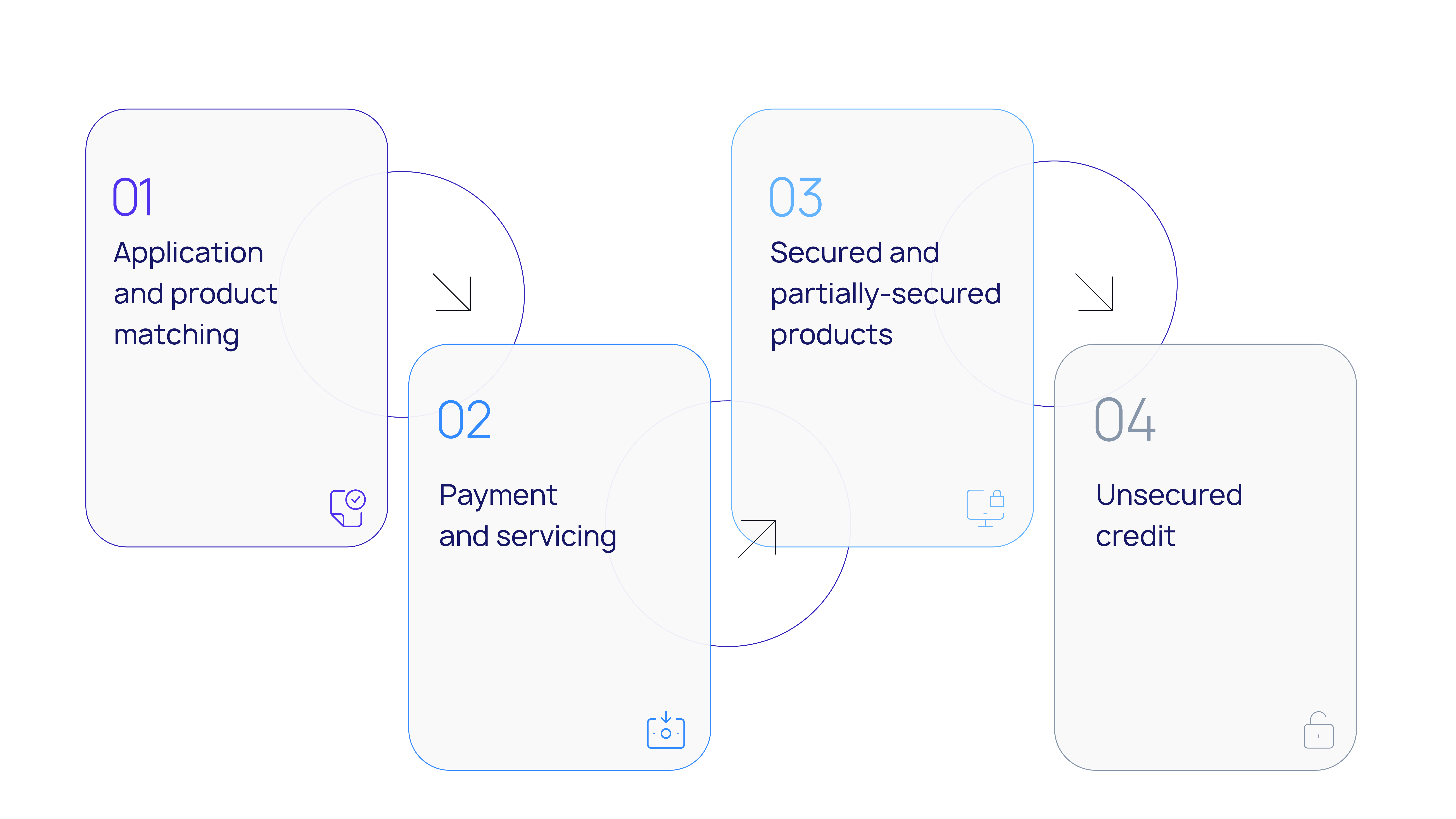Accrued: After Hours - Episode 6
Welcome to the sixth edition of Accrued: After Hours 🎙️! This weekly newsletter will provide you a short recap and the main takeaways of each episode from LoanPro’s Accrued podcast series on Fintech Confidential.
In today’s episode, we have a special guest as our co-host alongside Tedd: LoanPro’s very own VP of Partnerships, Sarah Howell! Accrued explores fintech through the lens of lending with insightful conversations from experts and leaders across the industry.
Listen to the Accrued episodes on the following platforms:
Today’s newsletter will cover season 1, episode 6: Wise up your Fintech: To Do What Fintechs Do Best w/ Robert Keil.
In this episode, Tedd and Sarah talk with Robert Keil, Chief Fintech Officer of FinWise Bank, about sponsor banking and the dynamic relationship between sponsor banks and fintechs. Robert also sheds light on how FinWise bank is staying ahead of the curve and shaping the sponsor bank-fintech landscape.
Here’s what went down👂
“Don’t be a BaaS”
Having an extensive background in banking, Robert has seen the rise of BaaS (banking-as-a-service) and its reputation for bad practices. Robert believes that banks having more line of sight and control on compliance is a solution that will help sponsor banks be a powerful partner for fintechs. In FinWise’s case, they use technology to enforce a thorough review process after approving a fintech partner.
To stay on top of the wave of sponsor banking, Robert explains that FinWise focuses on two main concepts that are helping them stay on top of the curve.
Tried and true core banking principles
Robert explains that FinWise sticks to the “tried and true core banking principles” that come from lessons learned from past banking experiences. As long as you cover these bases, you will set yourselves apart from other institutions.
Disciplined approach
We’ve all heard the phrase “the customer is always right”, but Robert has seen this motto played out in many sponsor bank-fintech partnerships where banks who jump too quickly into the partnerships will oftentimes view the fintech as the customer instead of the vendor.
What do you do with a vendor that doesn’t perform?
Robert Keil
When a vendor isn’t performing, you typically give them a few chances before you move onto a new vendor. However, viewing the fintech as a customer can enable banks to continue working with the fintech for revenue, despite menial performance. Ultimately, this negatively impacts the bank and fintech’s growth and success.
FinWise Challenges
One of the biggest challenges that Robert has seen FinWise experience is the philosophical difference between fintechs and banks.
While aligning goals can be tricky, there are solutions that banks and fintechs can provide each other that can strengthen the partnership.
Another challenge that Robert discusses is the rise of AI and how that is pushing FinWise to stay innovative.
Robert believes that AI is a great tool that will help processes move rapidly, but financial institutions should approach it cautiously with the consequences in mind if something goes wrong.
AI is something that can make a difference, but it’s never going to be smarter than its creators. It’s just going to do what the creators do faster and quicker. And so the quality of an AI really depends on the quality of the creator. If there is a flaw in there, what the AI will do is magnify it.
Robert Keil
Future trends for sponsor bank
Robert predicts that one of the future trends he sees for sponsor banks is less collaboration from banks and fintechs with consumer programs due to the change in VC money and consumer programs struggling to make profit.
Robert also predicts that small and mid-sized companies being a large underserved market opens opportunities for sponsor banks.
Lastly, Robert predicts that there may be more opportunities that don’t fit the “fintech” description. There are use cases for banking products that can enable real businesses, like food and grocery pick ups. As these use cases are emerging in B2B, B2B2C settings, it seems like there are endless opportunities for banking services that are extended beyond fintechs.
Key takeaways
Compliance is the core. FinWise is staying innovative in an evolving financial landscape by centering keeping compliance at the core of their business and technology use. Having line of sight and control over compliance as the sponsor bank is vital to having a successful banking-fintech partnership.
Approach AI cautiously. AI is as good as its creator. There is value in implementing AI technology into financial services, but it’s important to have human insights be a part of AI to keep it in check.
Banking sponsorship is here to stay. Robert doesn’t see banking sponsorship going away any time soon. Although BaaS has had a bad reputation in the past, Robert believes that we are currently in the “clean up phase” that will lead to a healthier ecosystem.




